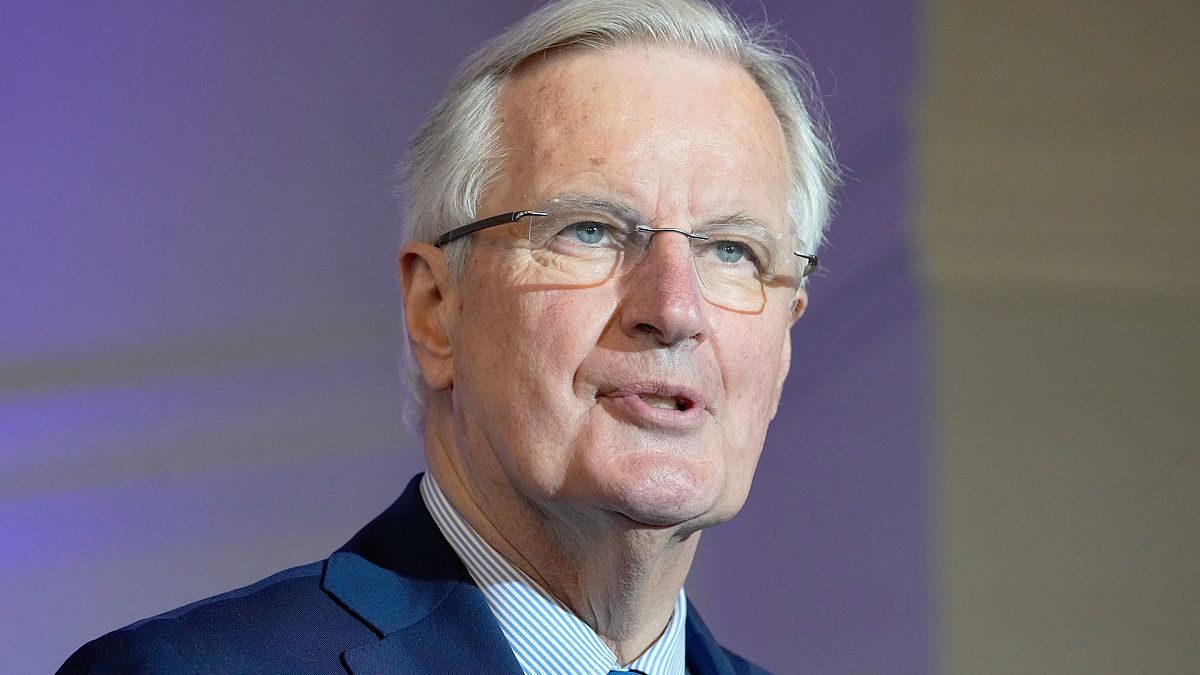France’s new Prime Minister, Michel Barnier, is facing a no-confidence vote in the National Assembly following President Emmanuel Macron’s appointment. The National Assembly is divided into three blocs, including the left-wing coalition NFP, Macron’s centrist group, and the far-right National Rally. Barnier, a veteran of the right-wing Republican Right party, has had a long political career, serving as European Commissioner and the chief EU negotiator for Brexit. At 73, he is the oldest prime minister of the Fifth Republic at the time of his appointment. This nomination comes after weeks of increasing pressure from political groups to nominate a candidate.
French politicians have reacted to Barnier’s appointment, with some calling for protests against what they view as a denial of democracy. National Rally’s Jordan Bardella expressed disappointment at the delay in Barnier’s appointment and called for urgent attention to issues such as purchasing power, security, and immigration. Jean-Luc Melenchon of France Unbowed criticized the appointment, calling it a theft of the election from the French people. The NFP coalition’s Greens also expressed their disapproval, accusing Macron of aligning with the radicalized right by appointing Barnier.
Experts believe that by choosing Barnier, Macron may have inadvertently strengthened the position of the National Rally and given it the role of a kingmaker. However, the left-wing’s importance should not be overlooked in determining Barnier’s fate in the confidence vote. If Barnier survives the vote, he will need to act quickly on various fronts, including submitting proposals to slash public spending to the EU by September 20, presenting a draft budget for 2025 to Parliament on October 1, and addressing France’s dire public finances.
Barnier’s appointment as France’s new Prime Minister has sparked political reactions and calls for protests from various parties. National Rally’s Jordan Bardella expressed disappointment at the delay in Barnier’s appointment and called for urgent attention to key issues. Jean-Luc Melenchon criticized the appointment, calling it a theft of the election from the French people. The NFP coalition’s Greens accused Macron of aligning with the radicalized right by appointing Barnier. The Communist party also criticized the appointment, stating that Barnier was chosen to continue the president’s policies, further fueling political tensions in France.
Experts believe that Macron’s choice of Barnier may have strengthened the National Rally’s position, making it a key player in the current political landscape. However, the left-wing’s role is also crucial in determining the outcome of the vote of confidence for Barnier. If Barnier survives the vote, he will have a tight timeline to address pressing issues, including submitting proposals to the EU to slash public spending and presenting a draft budget for 2025 to Parliament. France’s public finances are in dire straits, adding pressure on the new Prime Minister to act swiftly and decisively.
In conclusion, the appointment of Michel Barnier as France’s new Prime Minister has stirred political reactions and tensions in the country. From calls for protests to accusations of a denial of democracy, the nomination has polarized various political groups in France. Barnier faces a crucial no-confidence vote in the National Assembly, where his fate will be determined by the divided political landscape. If he survives the vote, Barnier will have a challenging road ahead, with tight deadlines to address pressing issues and navigate France’s troubled public finances. The outcome of the confidence vote will shape the future of French politics and influence the balance of power between the different political factions in the country.










